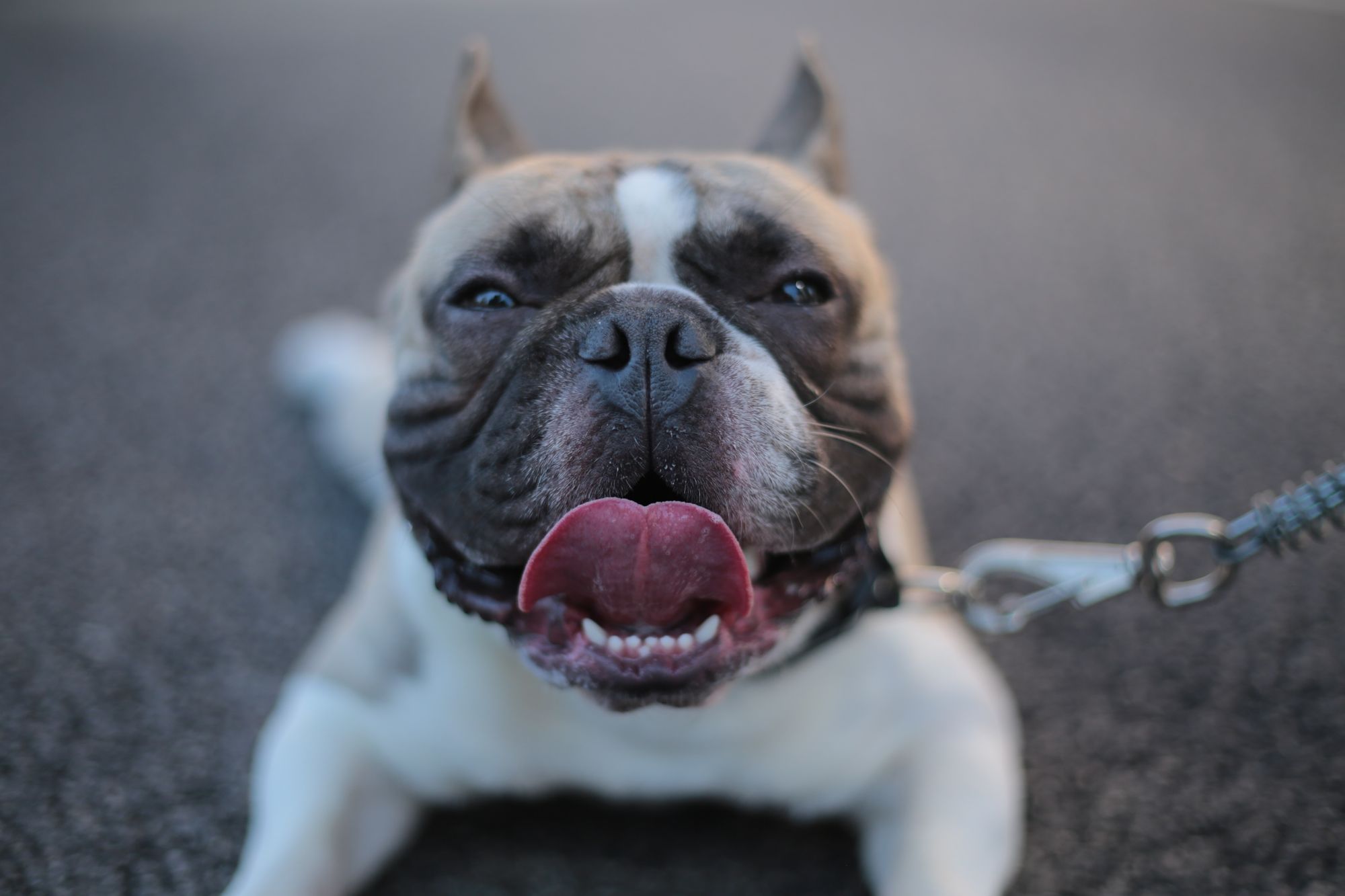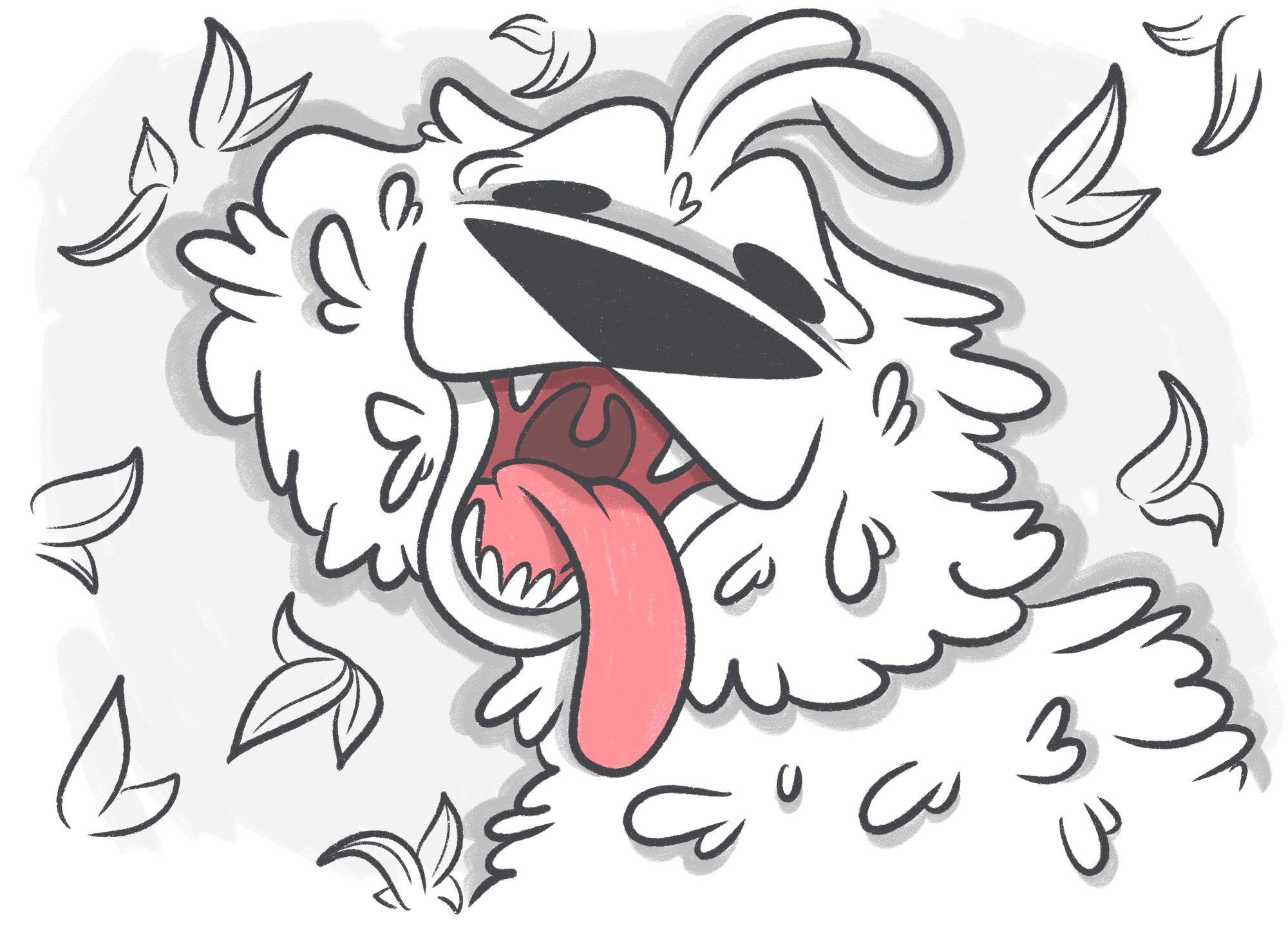Have you ever noticed that dogs don’t sweat like we humans sweat? Instead, they pant to cool their bodies down. If they didn’t pant, they’d overheat, so, to a certain extent, doggy panting isn’t unusual at all. It almost always happens after exercise, when the weather is warm when they get overexcited, and when they’re sick.
Tachypnoea is a medical term for too-fast breathing.
Dyspnea is the term for difficult or labored breathing.
Content:
- Why is My Dog Breathing Fast
- Dog Panting Fast While Sleeping
- How to Calm a Panting Dog
- FAQ
- Conclusion
Why is My Dog Breathing Fast
Rapid breathing in dogs is normal after they’ve exercised, much in the same way that humans pant for breath when they go for a run or to the gym. Some dog breeds are well known for being on the fast or heavy-breathing side, too. Brachycephalic breeds are the most affected.
Stop Googling - Ask a Real Vet
The following are loud, snuffling, and/or fast-breathing dogs:
- Pugs;
- Shih Tzus;
- Bulldogs;
- French Bulldogs;
- Affenpinschers;
- Boston Terriers;
- Chow Chows;
- Boxers;
- Cavalier King Charles Spaniel.
Medical Causes
When your dog pants abnormally fast or hard but isn’t excited, hasn’t exercised, and the temperature isn’t hot, there is likely a medical cause.
It is a symptom of a range of medical conditions, including:
- Toxic poisoning;
- Obesity;
- Heart conditions;
- Heart failure;
- Eclampsia (also known as milk fever);
- Trauma and injury;
- Infections (high fever);
- Cushing’s disease;
- Brachycephalic syndrome;
- Anemia;
- Respiratory conditions;
- Localized or generalized pain;
- Laryngeal paralysis;
- Allergic reactions;
- Heatstroke.
Because of this, it’s wise to have the symptom checked out by a vet as soon as possible.
Whether it's for a medical reason or a breed-specific reason, dogs need to be monitored. It's best to always be sure what your pet is doing and whether they are healthy and safe.
When it comes to dog panting, time can be very short. With Petcube Care, you can keep your finger on the pulse. This is an optional subscription service that adds features to a pet camera. Then you can observe your pooch anywhere and anytime and if something happens, come to the rescue in time.
In addition , if your dog has recurring shortness of breath, you can use the video day storage to see what exactly is causing it or, this videos can help you vet to make a diagnosis based on the dog’s recovered behavior.
Puppy
Puppies will breathe fast when they feel nervous, scared, anxious, or overwhelmed. You can almost look at it as the canine version of a human panic attack. They will often make a high-pitched whining noise at the same time.
Senior Dog
Senior dogs are more likely to pant heavily and faster because of ‘old age’. As they get older, their mobility decreases, and it can be quite hard for them to get around. They wear themselves out quicker, panting more frequently and with more intensity.
On the other side of the coin, senior dogs are more likely to experience health problems than their younger counterparts.
Dog Panting Fast While Sleeping
If you watch the footage back from your Petcube camera and spot your precious pooch panting fast while they’re sleeping, it could be the case that they’re experiencing REM sleep, which can cause an increased need for oxygen. Dogs can also breathe erratically when they’re dreaming.
Long periods of fast breathing or unusual panting during sleep are causes for concern and should be reported to your vet. It can be a symptom of respiratory problems, so ruling out serious conditions is vital.
A dog constantly panting at night is linked to Cushing’s disease, arthritis, hypothyroidism, and more.
How to Calm a Panting Dog

You first need to discover what is causing your dog to pant. A natural remedy for dog panting is to remove the affected pooch from sunlight or a hot room. Excited dogs will usually calm down on their own when removed from an exciting environment, eventually. You know your pet better than anyone else, so you’ll know the tricks to calm them.
As always, dogs should always have access to fresh, clean water. Move the bowl closer to them so they can cool off and rest.
Heatstroke requires urgent action, including a call to your vet. The American Veterinary Medical Association (AVMA) recommends moving your dog to a cooler, more shaded area and covering them with towels that have been soaked in cold water and then wrung out. Alternatively, showering a pooch with cool water will help cool them down.
Heatstroke in dogs is a medical emergency that requires urgent treatment; otherwise, it can be fatal. Thankfully, this is something that Petcube’s Emergency Fund can cover, so you won’t need to add ‘worrying about the bill’ as well as ‘worrying about the pooch’ to your to-do list.
FAQ
When is panting in dogs bad?
Doggy panting is bad when it happens at unusual times. It’s expected after excitement, exercise, or warm temperatures, but when panting isn’t because of those reasons, it can be a symptom of a medical condition. Other symptoms to look out for are stretching of the neck when panting, an upward-curling tongue, gum and tongue color changes, fatigue, and other quirks that are unusual for your dog.
What are the symptoms of Cushing’s disease?
Alongside heavy panting, other symptoms of Cushing’s disease that you should look out for are eating and drinking a lot more than usual, excessive tiredness and inactivity, a swollen abdomen, hair loss, and changes to the skin.
Is it normal for puppies to breathe fast?
The average puppy's respiratory rate (how many times they breathe) is 15 to 40 times per minute, but this varies hugely depending on breed, activity level, age, and more. It is normal for puppies to breathe quickly in short bursts when they’re sleeping, after exercise, in hot temperatures, etc.
Long-term disrupted breathing in puppies is not normal, though.
What is the normal respiration rate for dogs?
Respiratory rates for adult dogs will, once again, vary from breed to breed. Age, activity level, recent activities, and more will alter the average.
High-energy breeds can have a respiration rate of 30 breaths per minute, with low-energy breeds breathing as few as 10 times per minute.
Conclusion
This might look like completely benign and normal doggy behavior, but heavy, fast, and unusual breathing in dogs is not normal in the long term. It’s also not normal if it’s not normal for your specific dog. Each pet is different, after all.
You should contact a vet if you have any concerns about your dog’s health, even if you think it’s "probably nothing".
Was this article helpful?
Help us make our articles even better









